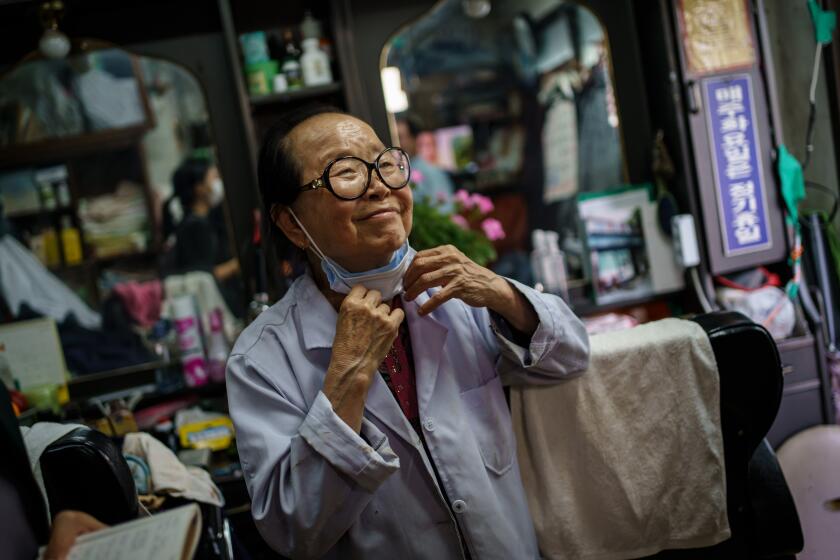One of South Korea’s most reviled criminal defendants: A college student with COVID who lied to contact tracers
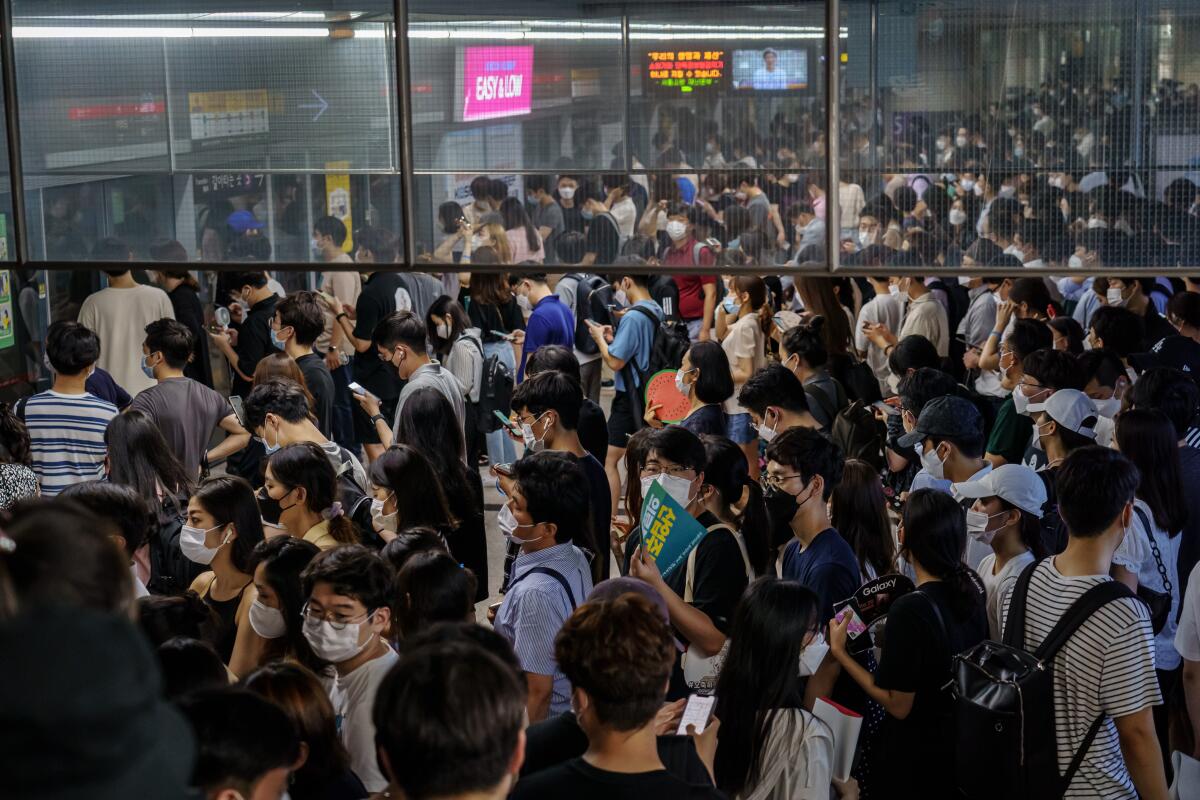
- Share via
SEOUL — The arresting officers came for the young man about a month after he was declared free of the coronavirus and discharged from the hospital.
While he was battling a mild case of the disease, he’d gone from an unremarkable college student a few credits shy of graduation to one of South Korea’s most reviled criminal suspects. The mayor of his city, Incheon, called his behavior “absolutely inexcusable.” Media reports and newspaper editorials lambasted him. On Twitter, someone suggested the 25-year-old deserved to be tied up in a popular street in central Incheon and stoned.
His alleged crime: He lied to contact tracers. He said he didn’t have a job, when in fact, he had a side hustle teaching kids at a cram school and in private tutoring sessions. Several of his students and fellow teachers later tested positive for the virus, leading to allegations that the delay caused by his lie had the cascading effect of dozens being infected and thousands needing to be tested and quarantined.
Now, he sits in jail awaiting trial, accused of impeding epidemiological investigators. He faces up to two years in prison and has become a cautionary tale in a nation well-versed in vigilance and shame. His name has not been released as is typical for criminal cases in South Korea.
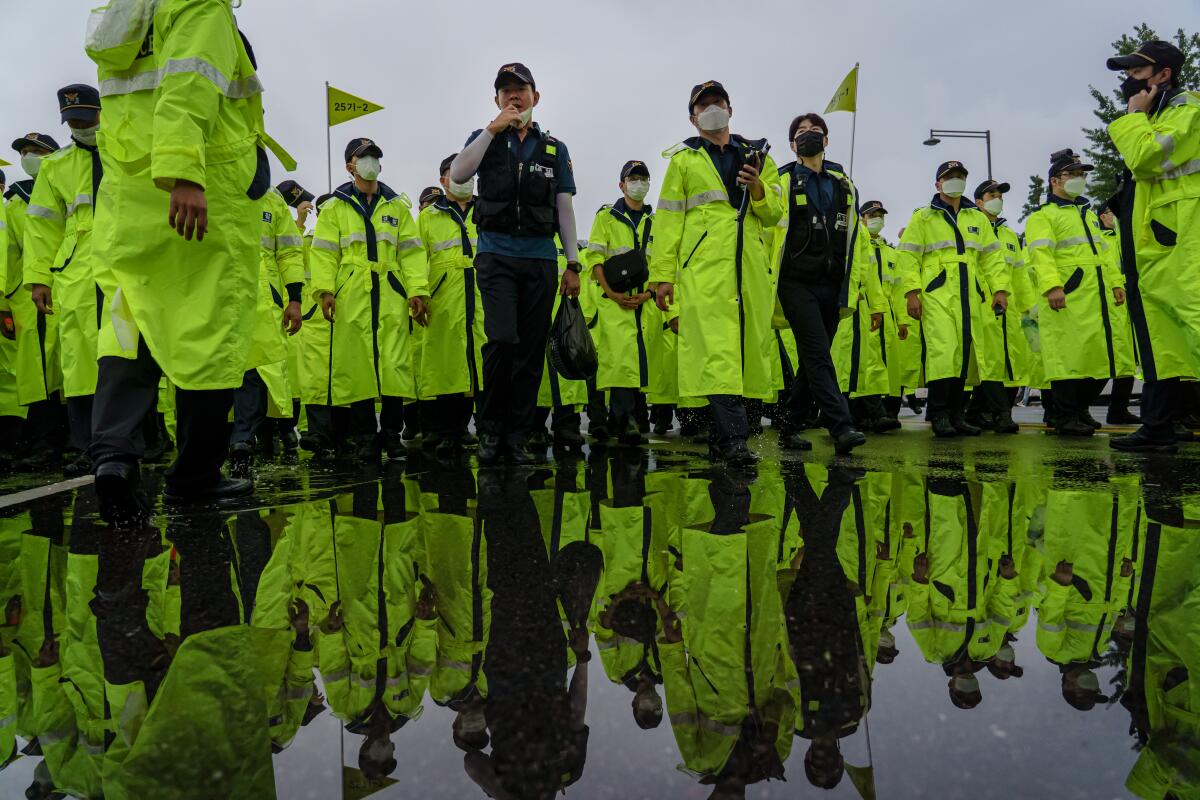
In addition to the digital surveillance, meticulous contact tracing and medical prowess that have made its coronavirus response the envy of the world, South Korea is also relying on the blunt letter of the law to fight the pandemic.
After proclaiming early in the country’s coronavirus outbreak that they would take a “zero tolerance” approach to those flouting their disease response, authorities are threatening to prosecute everyone from quarantine dodgers to mask refusers to those who aren’t truthful with investigators.
Throughout the pandemic, Lee Duk-hoon has coped the only way she knows how — bringing order to a chaotic world one head of hair at a time.
Police in South Korea have investigated more than 1,500 people for possibly violating disease control laws as of mid-August, referring more than 900 for prosecution. A dozen individuals have been jailed awaiting trial, according to police. The number is expected to grow dramatically in the coming weeks as the country struggles to get a handle on a new surge in cases fueled by a right-wing Christian group, many of whom are suspicious of the liberal government and have been uncooperative with authorities.
Governments around the world including Singapore, the United Kingdom and Australia have also turned to criminal prosecutions to enforce coronavirus-related restrictions. Some of the heightened policing has raised concern from human rights advocates, who caution that it’s a delicate balance between necessary measures to protect the public and infringing on citizens’ rights.
In May, Human Rights Watch warned that authorities in Myanmar, where at least 500 have been jailed for violating curfews or evading quarantine, were reacting disproportionately to the public health risk and may be exacerbating the crisis by adding to the prison population.
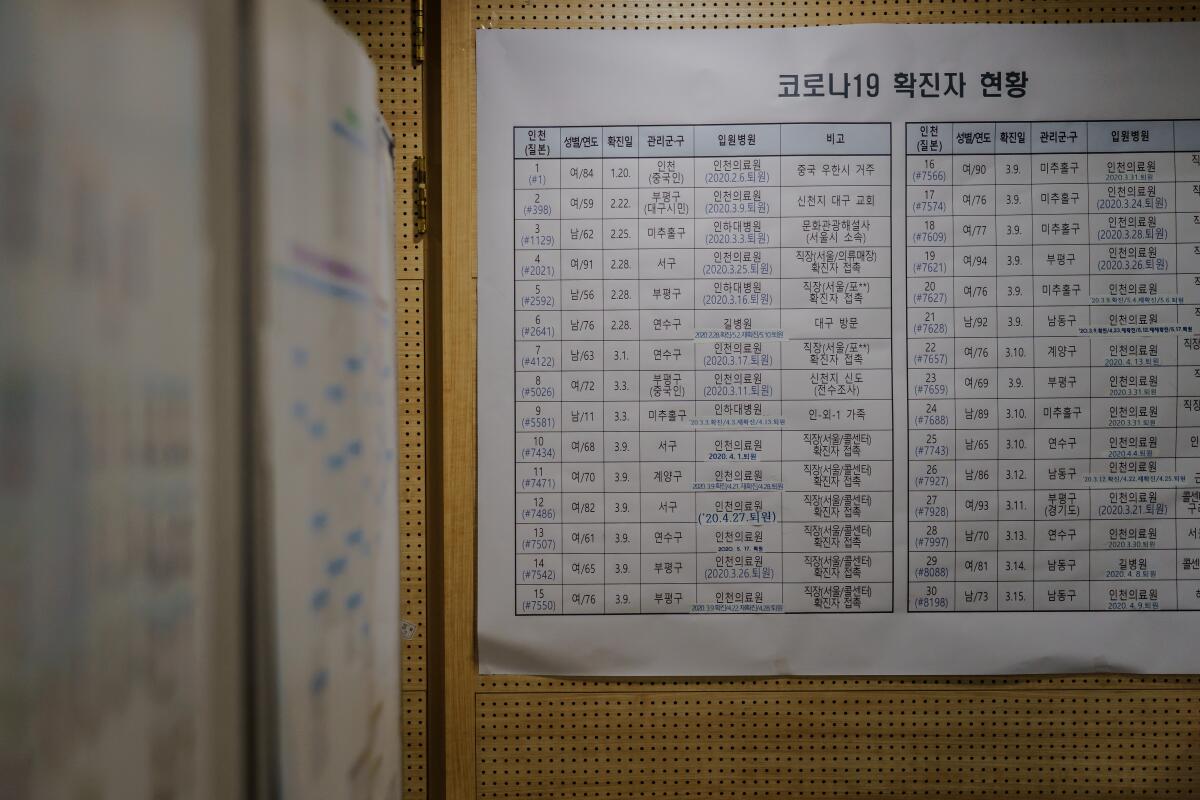
The criminalization of infectious diseases is a long-debated and researched topic among epidemiologists, particularly those who have worked with HIV-affected populations and recognize how the specter of criminal prosecution can create a stigma over getting tested and treated. With the rapidly unfolding COVID-19 pandemic, though, careful consideration of the legal strategy has been eclipsed by moment-by-moment crisis response.
“Criminalizing the disease to set an example because it’s a crisis situation can be problematic,” said Seo Bo-kyeong, a medical anthropologist and professor at Seoul’s Yonsei University. “The aim of epidemiological investigations should be that people aren’t fearful of the consequences.”
In South Korea, those jailed include Lee Man-hee, the founder and messiah of a fringe Christian sect linked to thousands of infections in March, accused of impeding epidemiologists; a man in his 20s who lied about having been to an area with a cluster of cases in order to get a coronavirus test; a man in his 60s who repeatedly violated a mandatory 14-day quarantine after entering the country to go to a sauna.
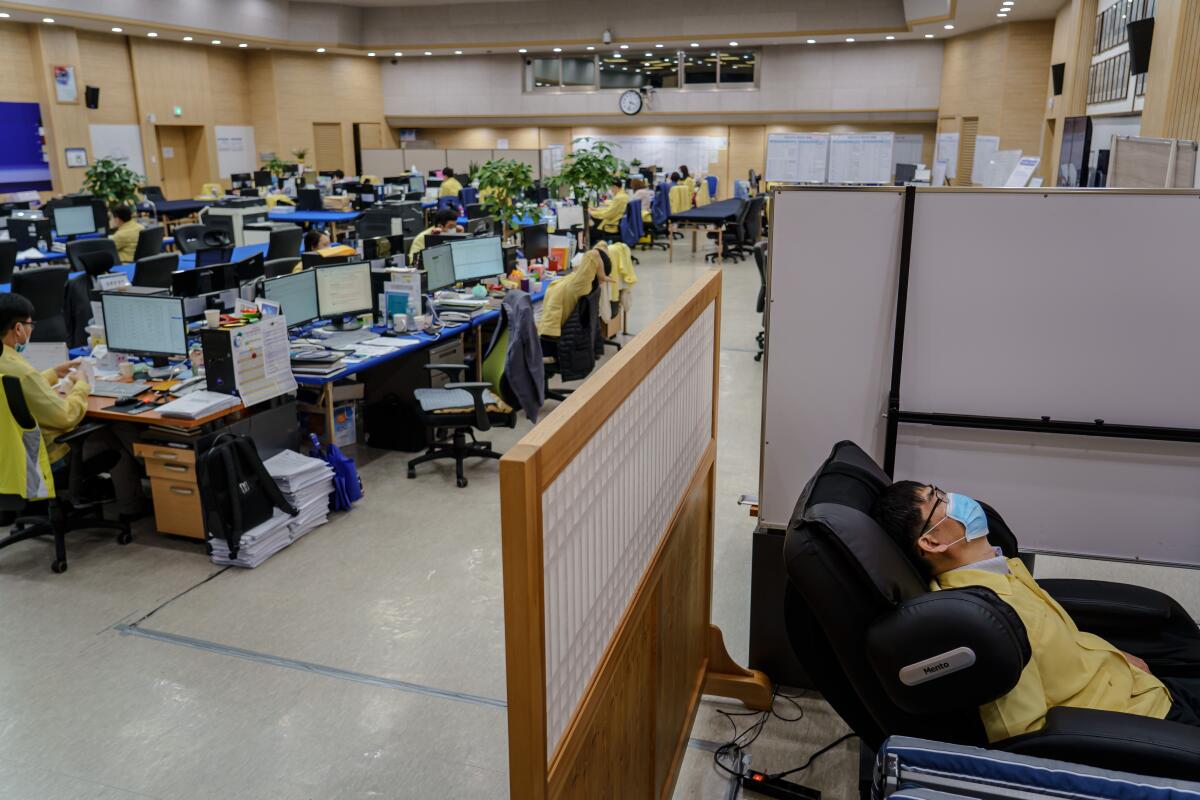
The 25-year-old in Incheon tested positive for the coronavirus after a weekend of clubbing and drinking at a popular Seoul nightlife district, where a cluster of cases emerged in early May. When a contact tracer questioned him about where he’d been in the days leading up to his positive coronavirus test, the young man appeared cooperative. But he did not mention his teaching jobs, said Hanaram Jang, an epidemiologist with the city of Incheon.
Three days later, contact tracers got access to the GPS location data from the man’s cellphone and questioned him about discrepancies with his interview. He admitted he’d taught a math class with several students at a private cram school and tutored a pair of 13-year-old twins at their home.
The trails of infections leading from the man wound through a karaoke spot his students visited, to a cab driver who sang there, to a 1-year-old’s birthday party where the cab driver worked a weekend gig as a photographer, to a massive 1,600-employee warehouse where one of the birthday party’s attendees worked. Epidemiologists tracked up to seven degrees of infections from the man, Jang said.
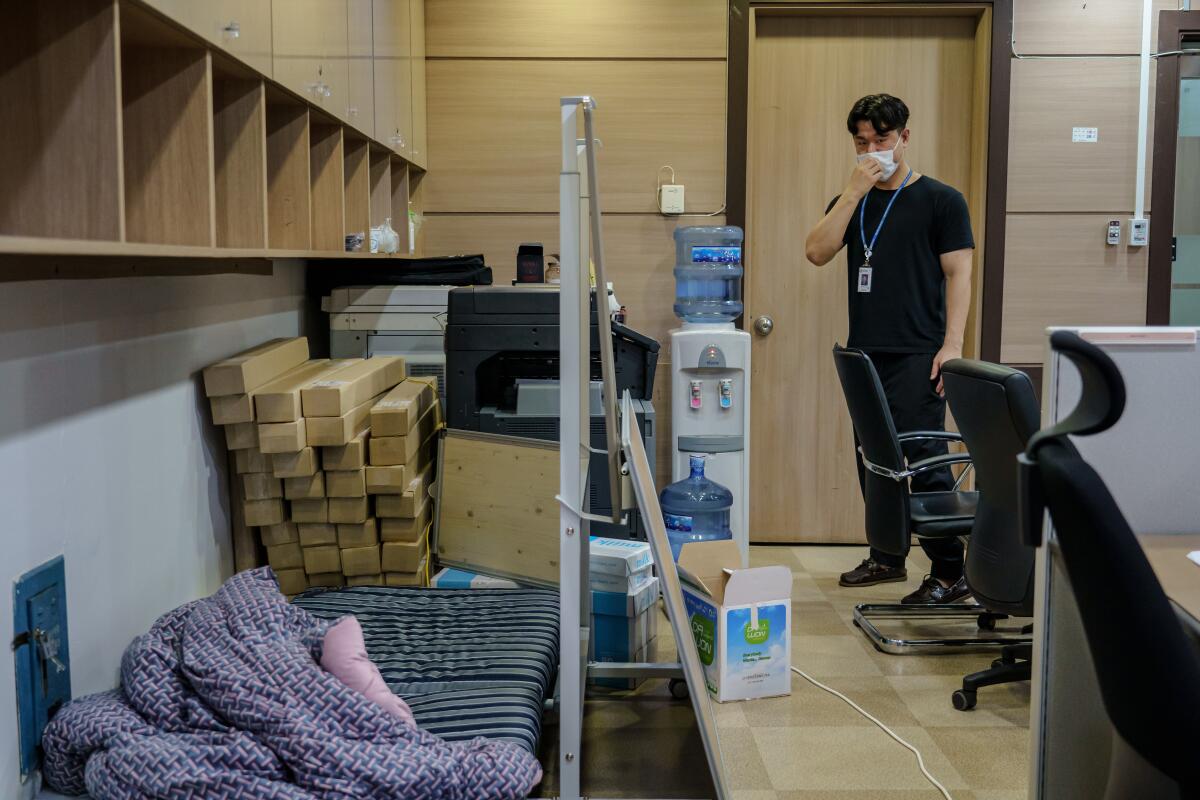
Jang, a public health doctor working for the city of Incheon in lieu of military service, said it was impossible to say whether the infections could have been stopped if the man had been forthcoming from the start.
“He was also someone who fell victim to the virus, and he was cooperative,” Jang said. “He was truthful about the rest — whether he left out the 1% intentionally or genuinely couldn’t remember, it’s tough to judge.”
Jang said he could understand why people are uneasy over invasive questions about their private lives. In the early days of the outbreak, when people weren’t as aware of the need for contact tracing, many were uncooperative and would sometimes abruptly hang up the phone, he recalled.
He said he was bothered by the degree of vitriol leveled at the 25-year-old.
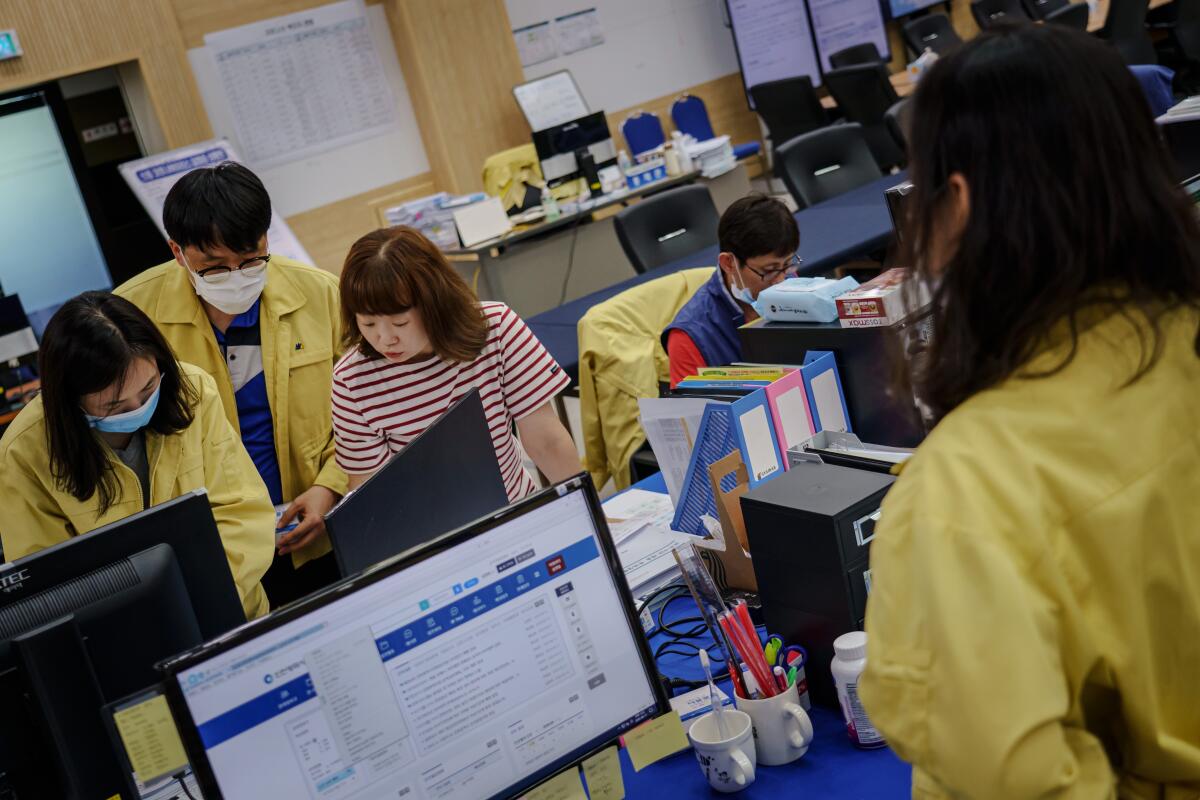
“It could be a double-edged sword. If the stigmatizing of those who test positive intensifies, people may be afraid to get tested,” he said.
Seo, the anthropologist, also noted that the nightclub outbreak started at a gay club. And while the sexual orientation of the man isn’t known, in South Korea, even the suggestion that he may be gay could have had major repercussions for his professional and personal lives, she said.
“He was a young person with an unstable job in a precarious situation,” she said. Bringing harsh criminal charges against infected individuals, she said, “casts patients as those who have morally failed and caused harm to society.”
On the eve of his trial, originally scheduled to begin this week at a courthouse in Incheon, authorities announced orders to delay non-urgent cases because of the latest surge in coronavirus infections.
As the virus continues to infect hundreds daily in the country, he will remain in jail at least until Sept. 15, when his trial is now slated to go forward — barring further coronavirus-related delays.
More to Read
Sign up for Essential California
The most important California stories and recommendations in your inbox every morning.
You may occasionally receive promotional content from the Los Angeles Times.
